A recent Taiwanese report indicates malign narratives from China increased 60% in 2024. EdgeTheory’s Narrative Intelligence brief on Arms Sales to Taiwan reveals an example of this. The brief identifies several Foreign Malign Influencers (FMI) deploying coordinated language to reinforce a perception of US aggression in the region, skewing both foreign and domestic perceptions of US policy toward Taiwan.
EdgeTheory models reviewed millions of items from sources like RT, Ecns.cn, and their affiliated outlets and accounts, revealing FMI attempts to frame US actions as provocations. These narratives leverage simple catch-phrases such as "playing with fire” that do not deeply analyze the implications of US arms sales to Taiwan.
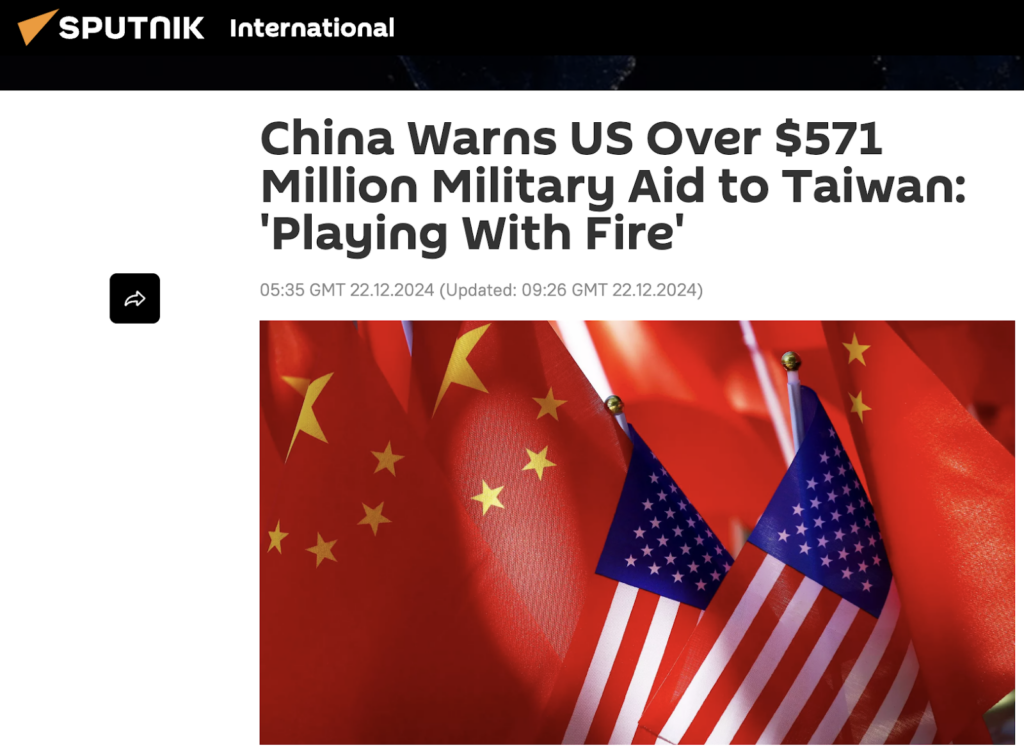
What began as a statement from the Chinese Ministry of Foreign Affairs on 22 December, 2024 has resurged in mid January as part of a coordinated information campaign.² With EdgeTheory tools, we are able to identify how widely and fast this information warfare campaign has spread. Chinese, Iranian, and Russia-aligned sources make up almost equal portions of internet traffic on the topic, indicating significant Russian and Iranian support for China’s perspective.
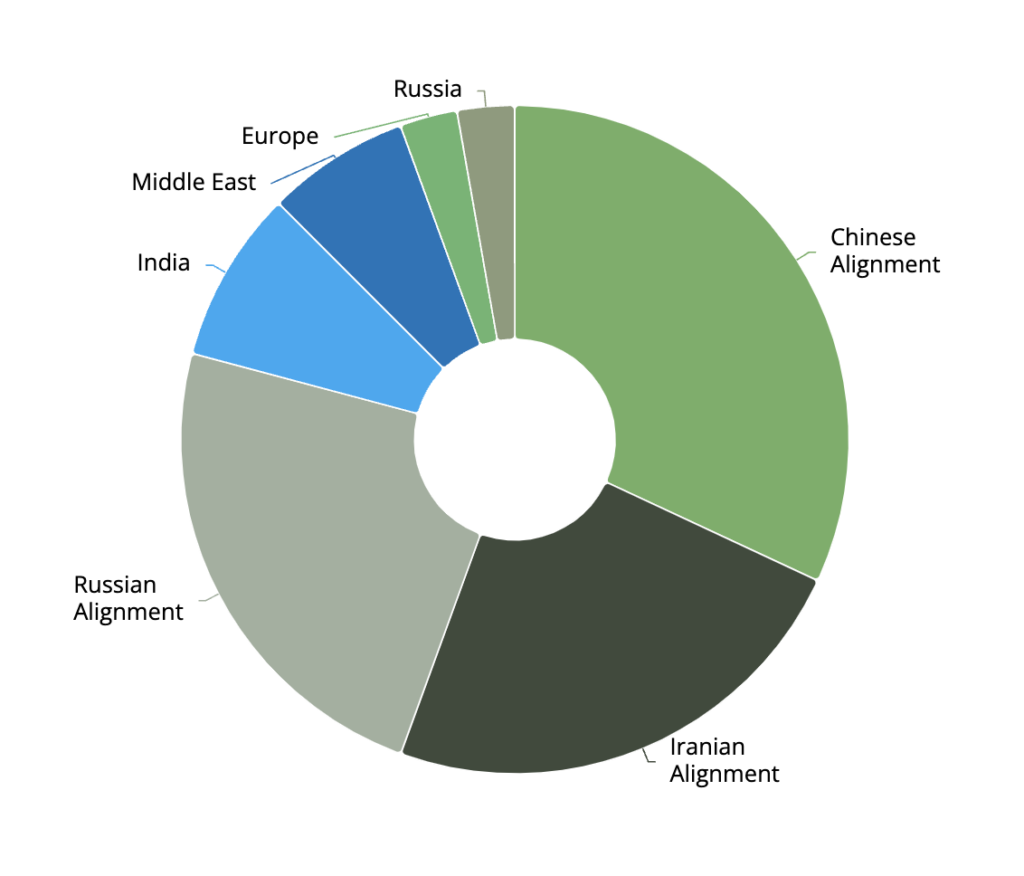
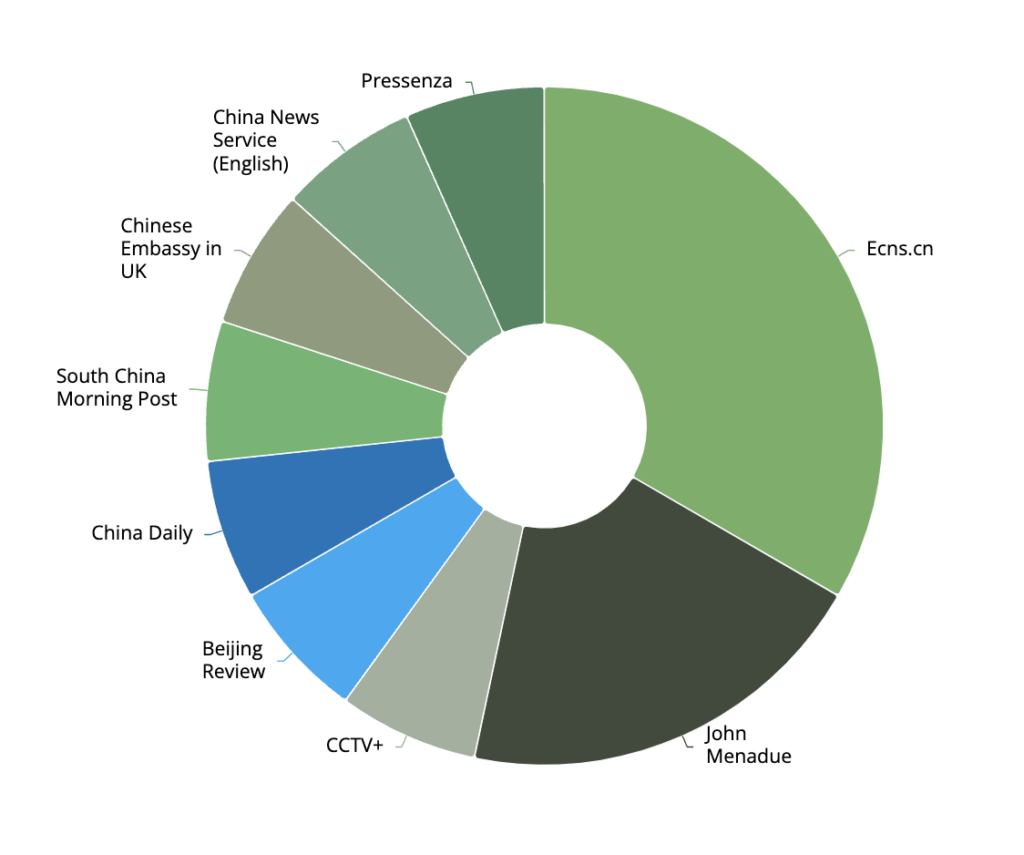
Prominent Chinese sources by volume of articles and most active publishing format (e.g. X (formerly Twitter), YouTube, newsroom website (RSS), Telegram):
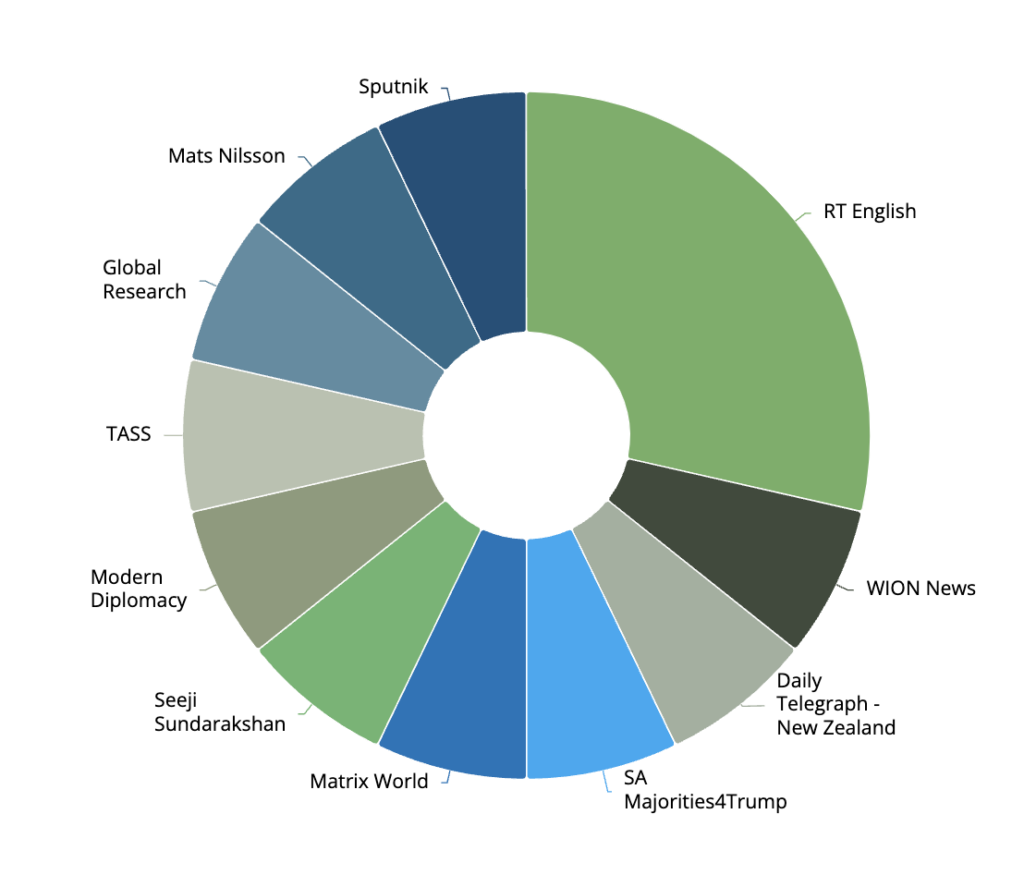
Russian sources:
EdgeTheory identified numerous US-based and foreign outlets utilizing similar wording or repeating the phrase "playing with fire" as the focus of headlines. These articles portray the US as the instigator, removing responsibility from China for any following actions that might “ignite” a conflict.
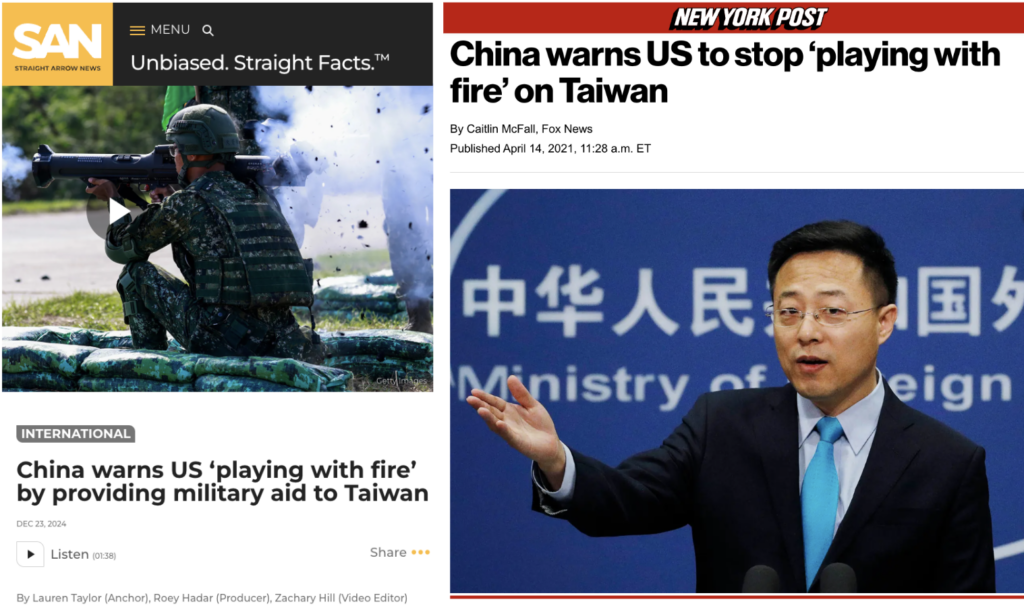
When Reuters similarly reported on Russia’s statement in August 2024 that the West was “playing with fire” regarding aid to Ukraine and the potential to instigate World War Three, Reuters used the moderate headline “Russia warns the United States of the risks of World War Three.”
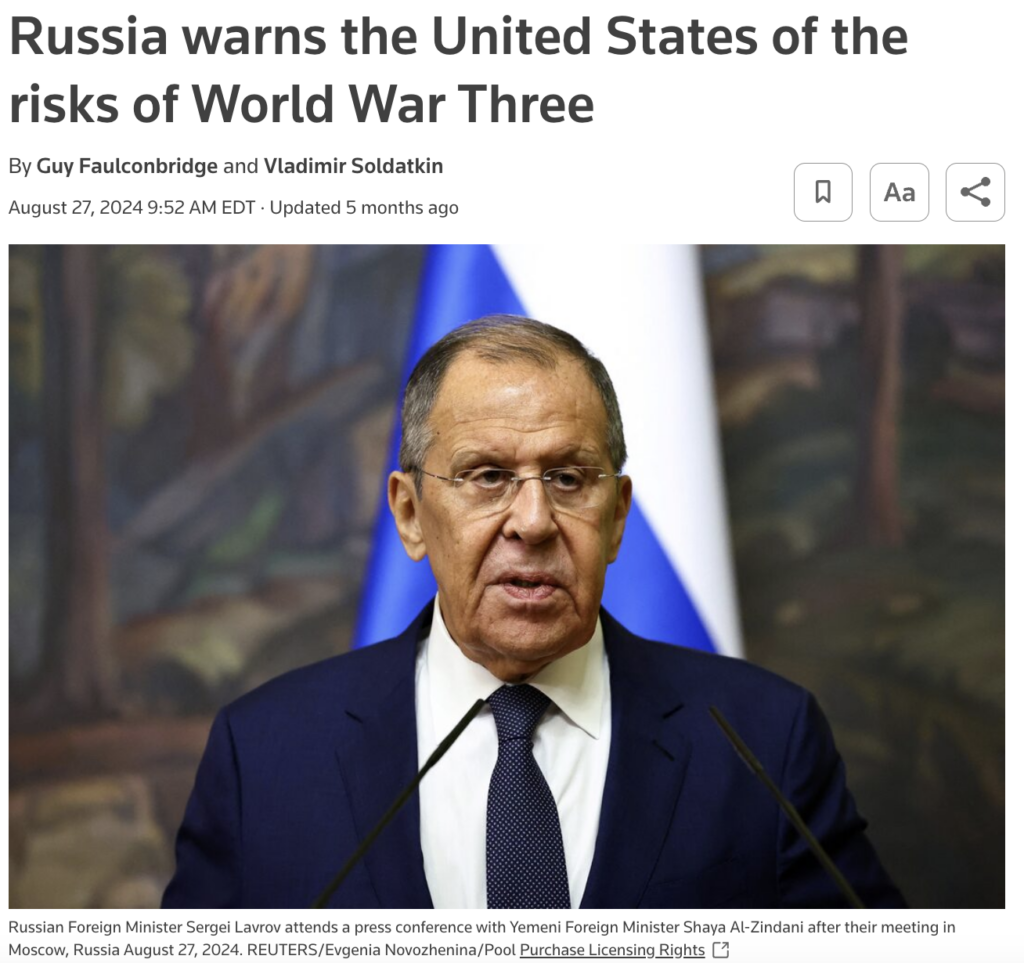
FMI sources, such as SCMP, then reproduced the Reuters article in full, modifying only the headline to feature the slogan of the identified information campaign: Ukraine war: Russia warns US of World War III risks, says West ‘playing with fire’.

Other FMI sources then spread the narrative to specific localities using various foreign languages. FMI sources also seized on the phrase “playing with fire” and applied it to other conflicts.
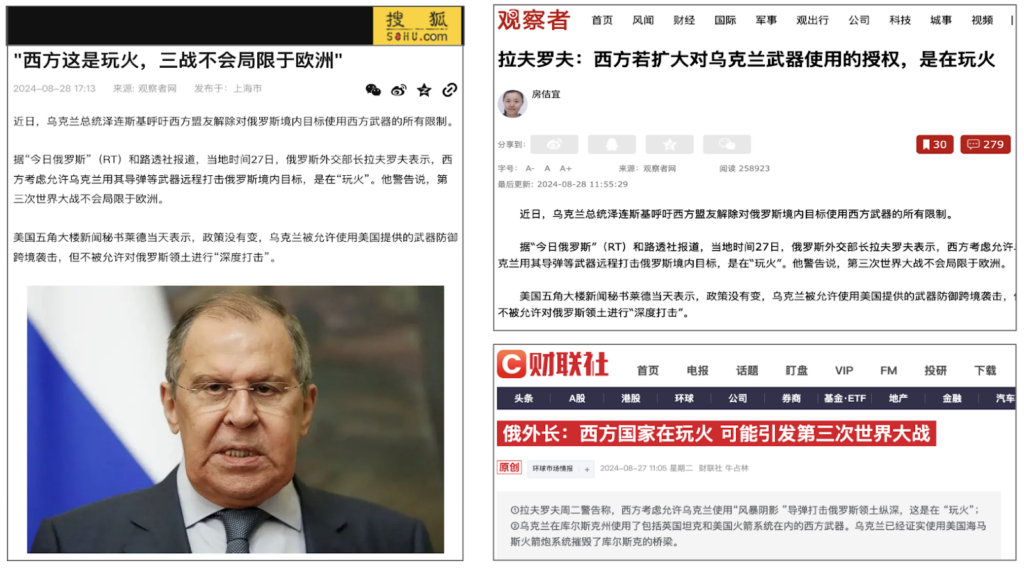
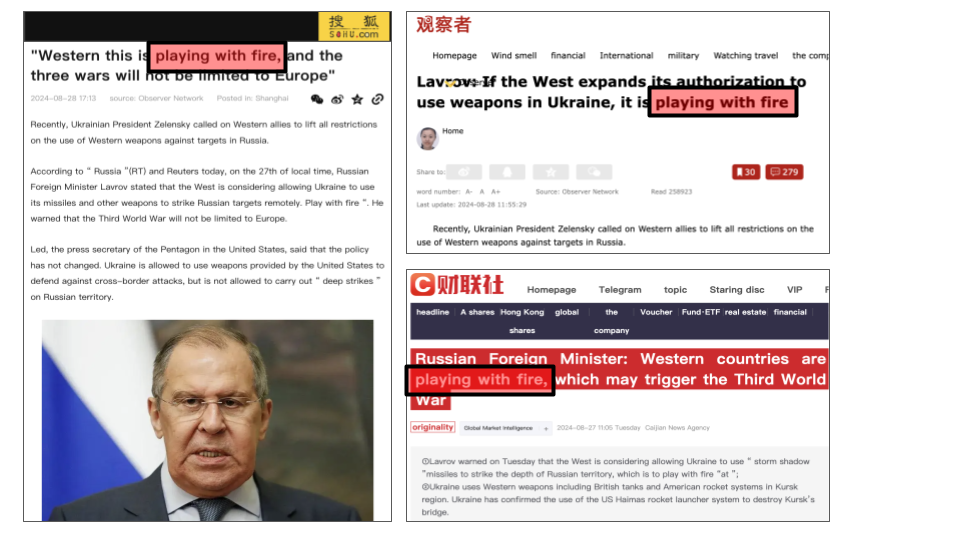
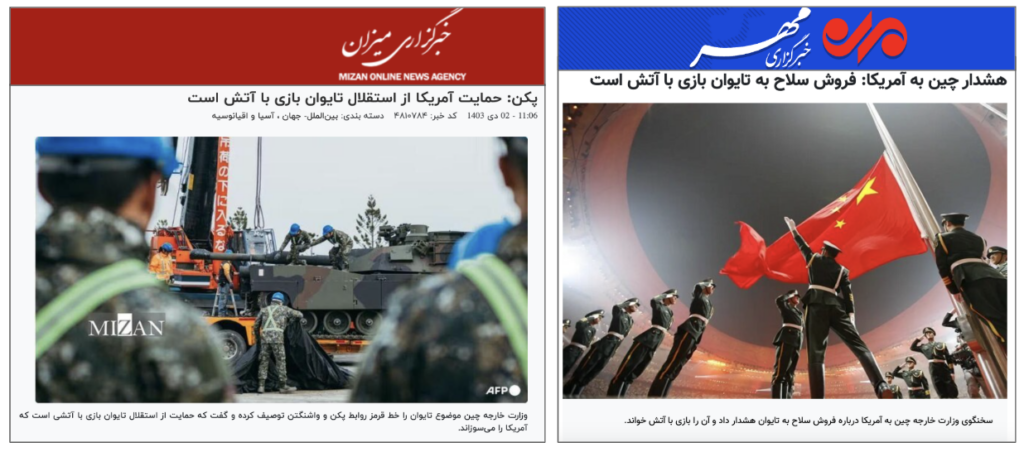
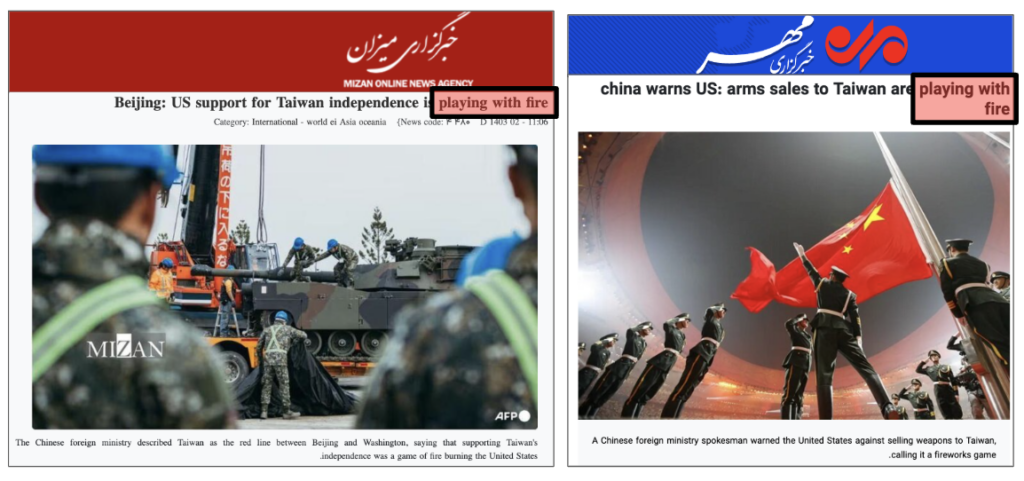
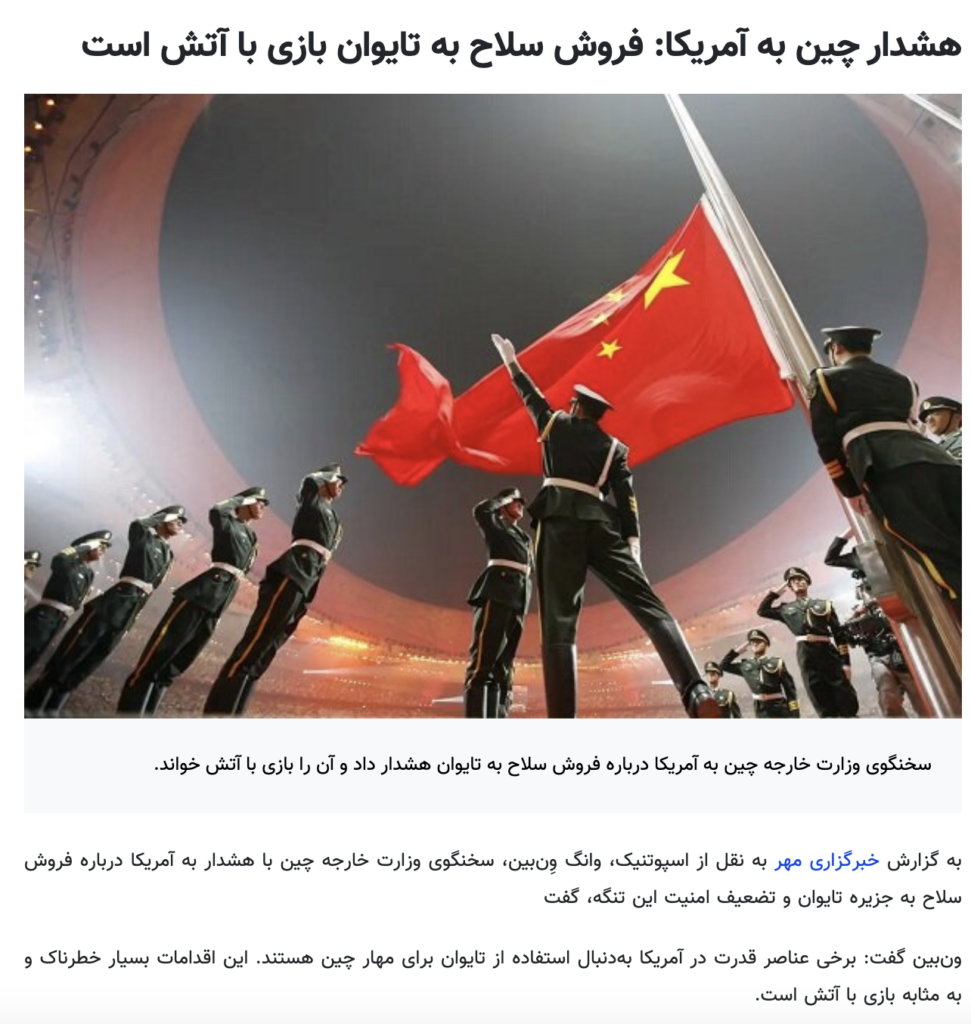
An article from the Iranian MEHR News Agency elaborates on the phrase “playing with fire” to further position the US as a provocateur. The author states that the US must “stop military relations and arms supplies to the island,” actions the article describes as “very dangerous,” “like playing with fire,” and that could potentially “lead to conflict in the Taiwan Strait.”
Although FMI frame the US as an antagonistic provocateur, EdgeTheory geospatial narrative mapping also reveals that FMI narratives are far more concerned with how Taipei and Beijing might respond to US actions as indicated by the narrative mapping below. FMI sources predominately target Beijing and Taipei in their narratives with comparatively few discussing the US as a primary concern.
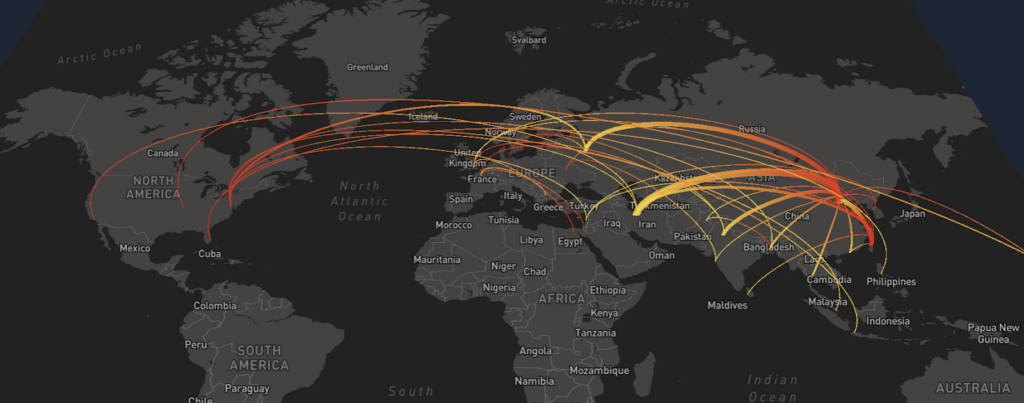
This framing technique places the US in a catch-22 where any US action is decried as disruptive to regional peace while also framing the US as a partly inconsequential entity. This narrative style is likely to create the perception that the region should reject the US. The presumed intent is to both test and undermine the US’ resolve in supporting Taiwan.
Closely monitoring these narratives with EdgeTheory briefs allows analysts to identify when FMI narratives begin to rapidly swing in one direction, potentially yielding Indications and Warnings (I&W) about impending Chinese military operations against Taiwan.
US audiences are inevitably exposed to biased narratives that shape their perception of US actions. This bias often leans toward framing the US as either wrong in its actions or better off not acting at all. Audiences should be careful to discern when US sources are parroting phrases that are being pushed by FMI sources, and dig deeper into narratives to understand how they might inadvertently be fed false or misleading perspectives.
EdgeTheory’s Narrative Intelligence briefs can help reveal what narratives are being pushed in various regions and how audiences, companies, and government officials can strategically respond to counter false narratives.
With EdgeTheory, security officers can monitor the alignment of country-specific sources, identify and assess popular positions on new or ongoing armed conflicts, and determine the risk of conflict between audiences on any given topic. Utilizing multilingual narrative analysis provides analysts with a strategic edge in identifying risk vectors for targeted audiences, evaluating the likelihood of consumer support or opposition to development projects, and crafting aligned messaging to strengthen investor and public relations.
Request a Personalized Demo Today to see how EdgeTheory’s technology can help you stay ahead of emerging narratives and risks.